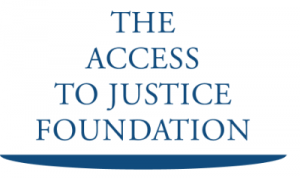The Justice and Innovation Group
From funders to frontline services, we receive feedback from all levels that digital, data and technology initiatives are key focus areas in development and delivery of services. But what does this mean for the organisations we support and how can we make sure innovation is supporting and being utilised by those helping people in need?
About the Justice and Innovation Group
The Justice and Innovation Group (or JIG as it is affectionately known) is a cross sector community interested in using innovative ways of working to develop and deliver justice services to our beneficiaries.
It includes individuals, organisations, and initiatives interested in supporting, or undertaking work using innovative methods in the access to justice space including members from the frontline, academic, Law and LegalTech, innovation, and service commissioning communities.
Previous meetings
2024 June Justice and Innovation Group
2024 June Justice and Innovation Group The session explored how can we learn from open access and LegalTech AI systems to support our work and
2024 March Justice and Innovation Group
2024 March Justice and Innovation Group Meeting This session focused on the opportunities, limitations, and models of dispute resolution including some demonstrations and presentations of
2023 December JIG Meeting
2023 December Justice and Innovation Group This session showcased a range of new initiatives as well as getting an update on previously demonstrated tools. It
What does the Justice and Innovation Group do?
The Group shares updates across the community to ensure work in this area is coordinated and that everyone can make the best use of the experience, expertise, and learning generated by the collective knowledge of the group.
The group identifies and discusses key issues facing the access to justice community in the innovation and technology space. So far, they have identified four key areas:
- Data and evaluation,
- Design and user experience,
- Tools and technology, and
- Training and upskilling.
The Group uses quarterly meetings to enable knowledge, material, resource, and opportunity exchange, and:
- Keep the community updated on key developments,
- Share learning around what has and hasn’t been working,
- Learn about and engage with external sector opportunities, including for partnership working, and
- Support collaboration in innovation and justice.
Guidance, intelligence, and insight is crowdsourced from the Group to support other projects and to identify initiatives with collaboration potential.
How is the Justice and Innovation Group supported?
The Group is supported by the Access to Justice Foundation and facilitated using the Network for Justice which collates the work of the community and provides the administrative functions to share and coordinate activity.
Using the Network for Justice we outreach into other sectors interested in supporting innovations in access to justice and links their contacts, initiatives, materials, and opportunities in with our community. We actively engage with specialists in this area and has a focus on highlighting and sharing resources and tools (including training and capacity building) for the frontline and building relationships with external stakeholders that the sector can benefit from.
The Network initiated work in this space because it saw an influx of concerns about developments in this area including:
- A lack of awareness about what is already existing or in development,
- A lack of understanding on how implementing innovation can support service delivery, and
- A lack of coordination between frontline and systemic innovation.
About innovation
Simply put, innovation is the process of doing things differently to get better results.
Innovation is also about how people (including supporters, service users and beneficiaries) interact with services, with other support offerings and the system as a whole.
Innovation doesn’t immediately need capital investment or sweeping changes to work, it can be delivered doing things many of us are familiar with or are already doing; understanding our users, collaborating, testing our thinking, sharing learnings and (our favourite) repurposing resources that already exist.
There’s a close relationship between innovation and technology but innovation is a lot wider; it involves insight, process, collaboration, creativity, and communication. It can mean cultural shifts or new ways of working. It can be done by one person or a whole organisation.
Data, digital services, and technology in general are changing the ways a lot of service and systems are operating and so “innovation” is often applied to these developments.
We use the term innovation because we want to support any kind of approach which delivers a positive change.
We know from member feedback that innovation, particularly around technologies and the use of data, is increasingly an area of interest, concern, confusion, and opportunity for organisations working in, or wanting to support, the access to justice community.
Funders increasingly have digital, technology or innovation criteria with several government funding streams dedicated to supporting work in this area. In addition to this, more and more services and systems are becoming digitally driven; with a policy trend towards “digital by default” we want to make sure that we know and understand enough about our user to be able to speak to their needs and push back on this approach where we need to.
Without the necessary culture, skills and understanding there is a danger that we will be left behind.
To make best use of these opportunities and to ensure the sustainability and growth of our services we can use innovation to benefit clients, make things easier for staff inside organisations and, crucially, save our resources.
